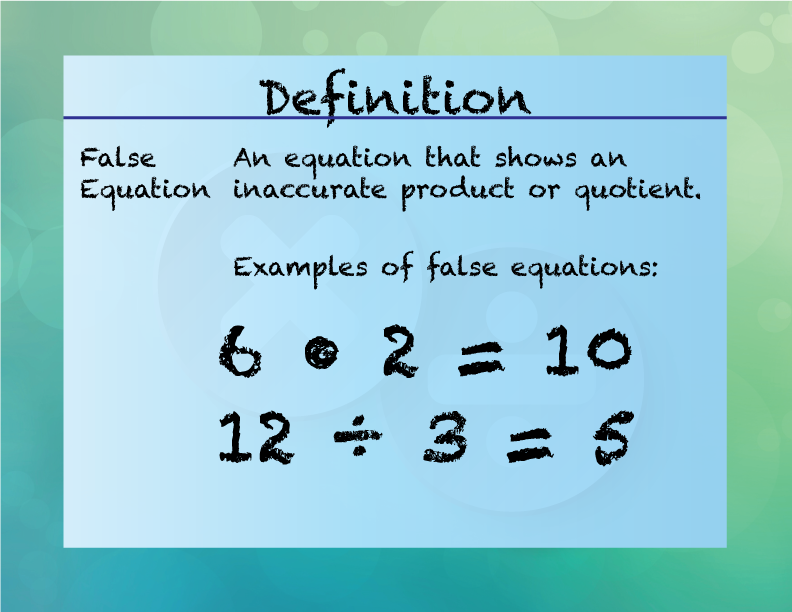
Display Title
Elementary Definition--Multiplication and Division Concepts--False Equation
Display Title
False Equation

Topic
Multiplication and Division
Definition
A false equation is a mathematical statement that shows equality between two expressions that are not equal.
Description
False equations are important in mathematics as they help students understand the concept of equality and inequality. By identifying false equations, students learn to verify their calculations and understand the importance of accurate arithmetic operations. In real-world applications, ensuring equations are true is crucial in fields like engineering, finance, and computer science, where incorrect calculations can lead to significant errors. Teaching students about false equations enhances their critical thinking and problem-solving skills by encouraging them to question and verify their work.
Teacher script: "If you say 2 + 2 = 5, that's a false equation because 2 + 2 actually equals 4. Let's always check our math to make sure it's correct."
For a complete collection of terms related to Multiplication and Division click on this link: Multiplication and Division Collection
| Common Core Standards | CCSS.MATH.CONTENT.4.OA.B.4, CCSS.MATH.CONTENT.3.OA.C.7, CCSS.MATH.CONTENT.3.OA.B.5 |
|---|---|
| Grade Range | 2 - 4 |
| Curriculum Nodes |
Arithmetic • Multiplication • Multiplication Expressions and Equations |
| Copyright Year | 2021 |
| Keywords | multiplication, division, equation |